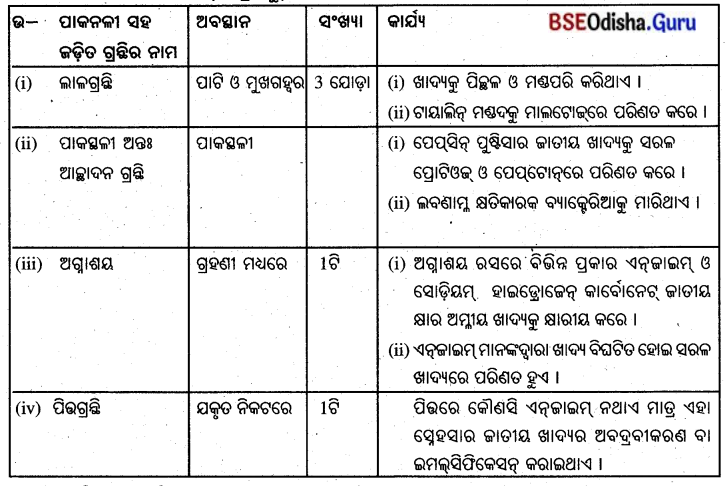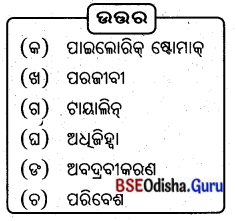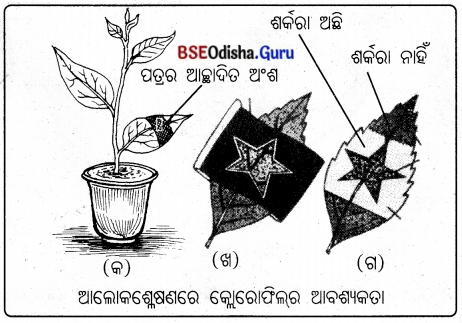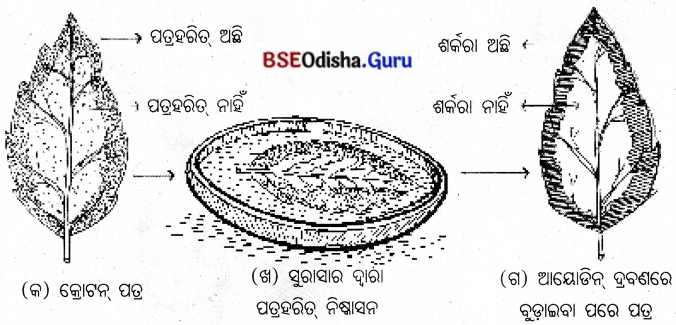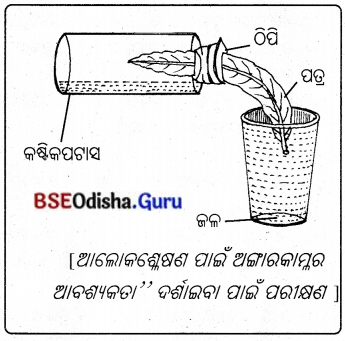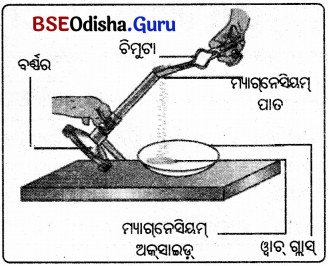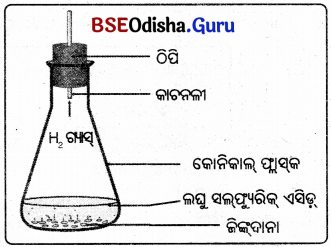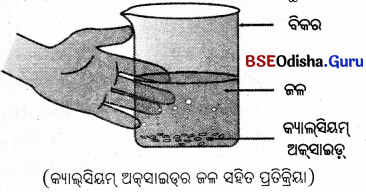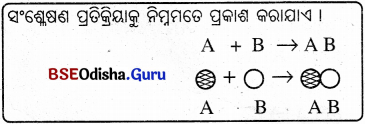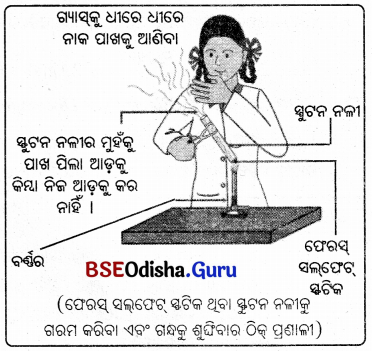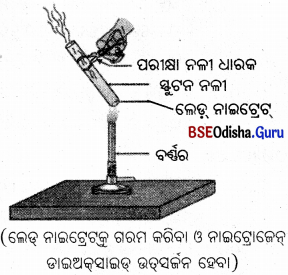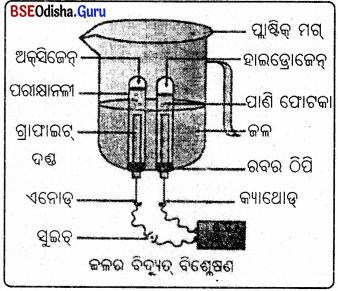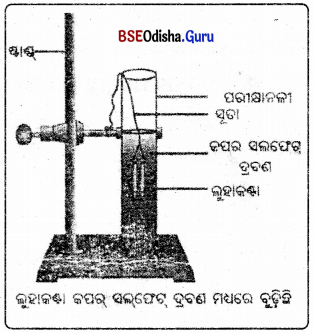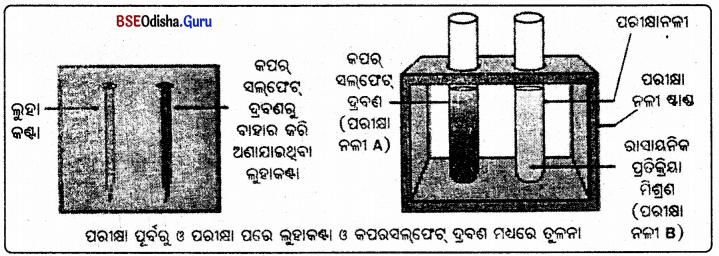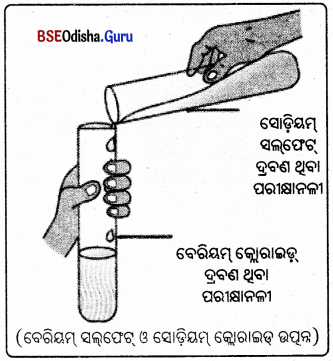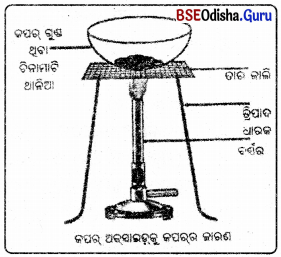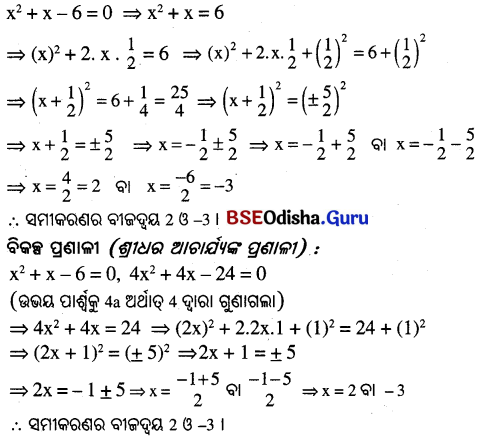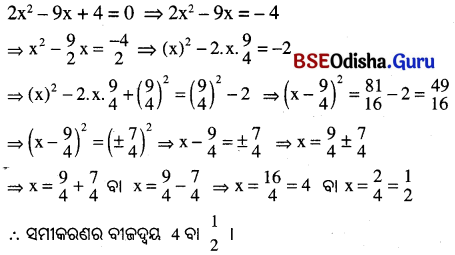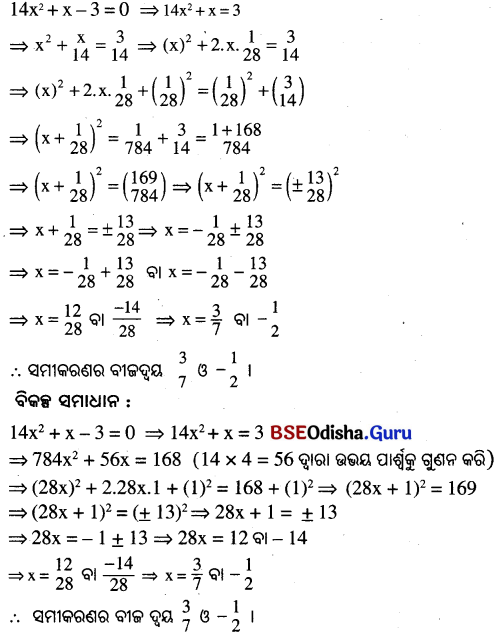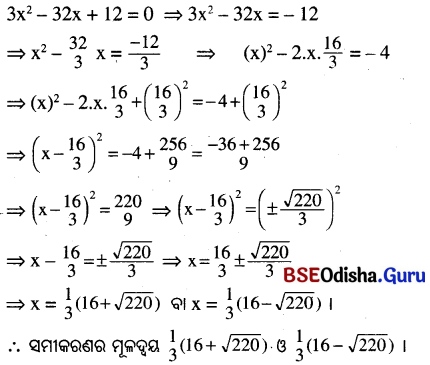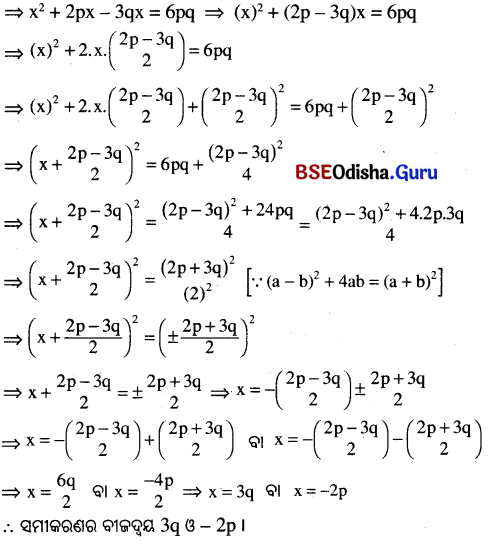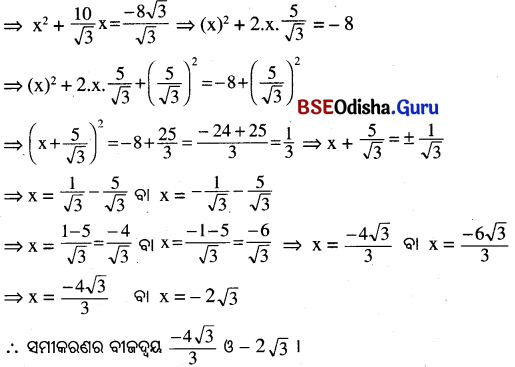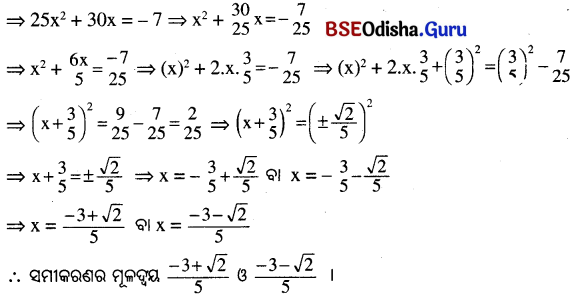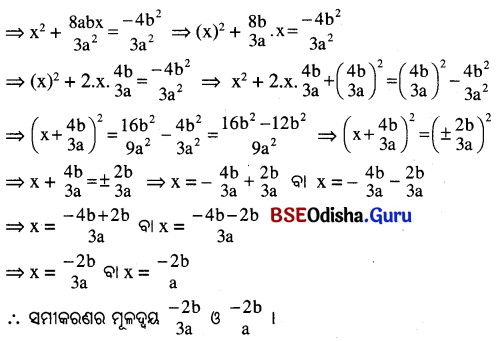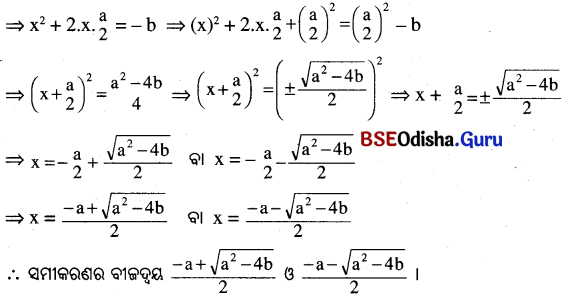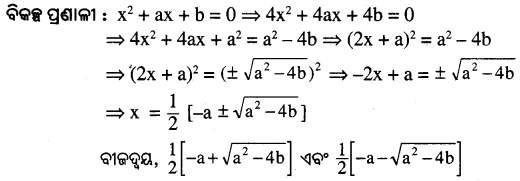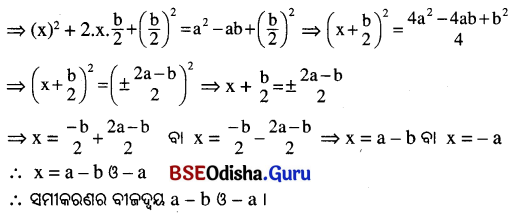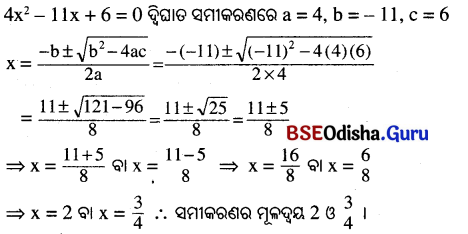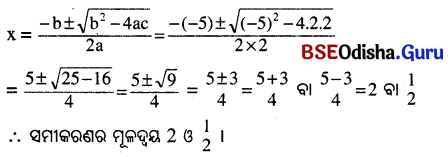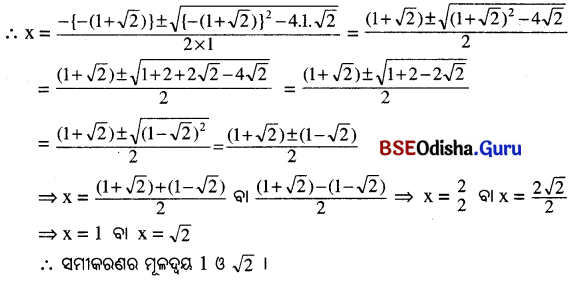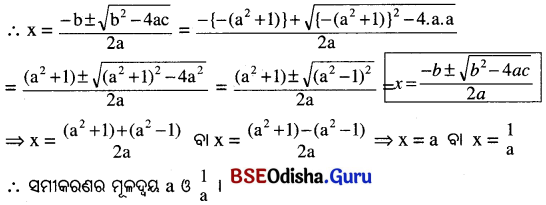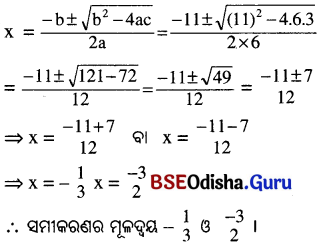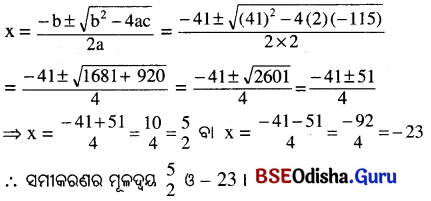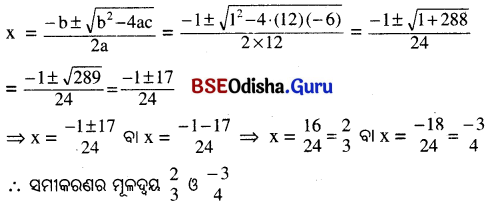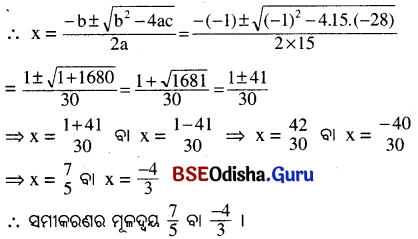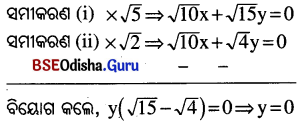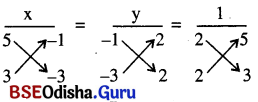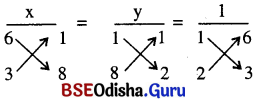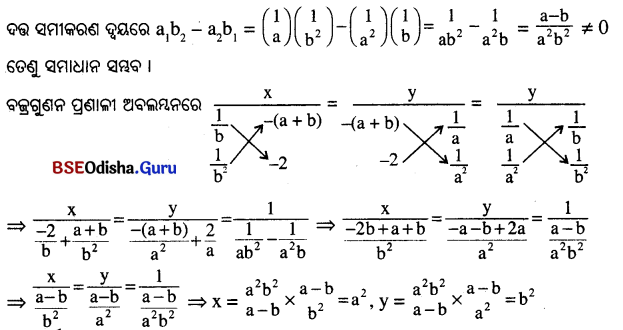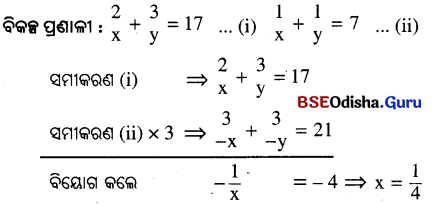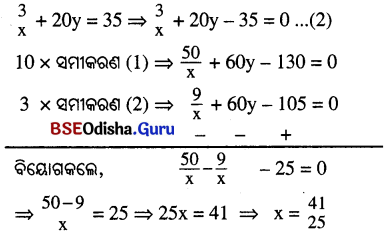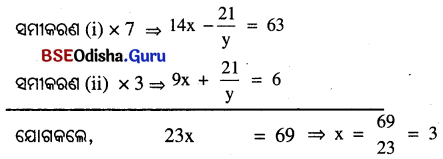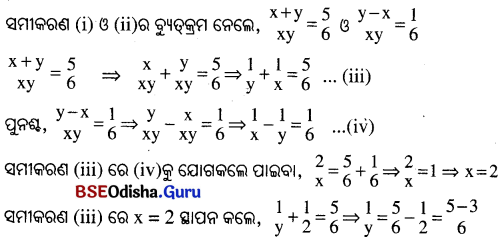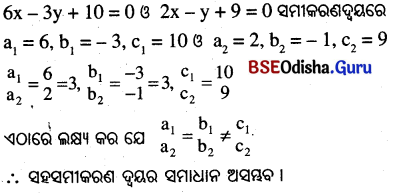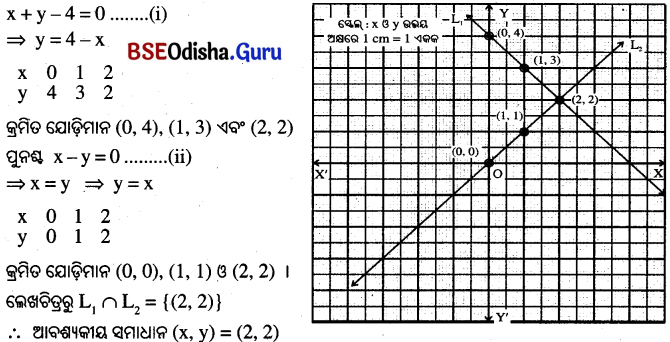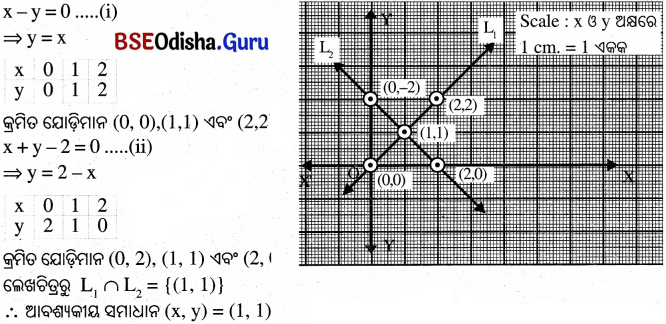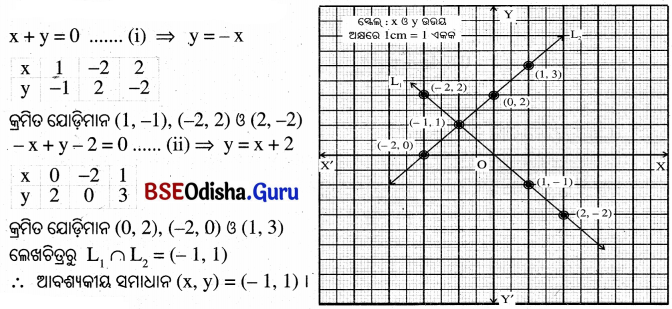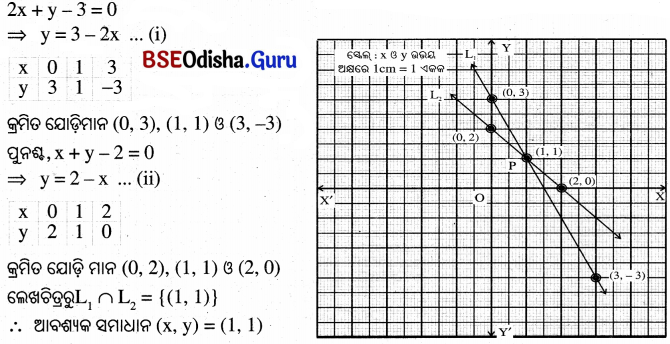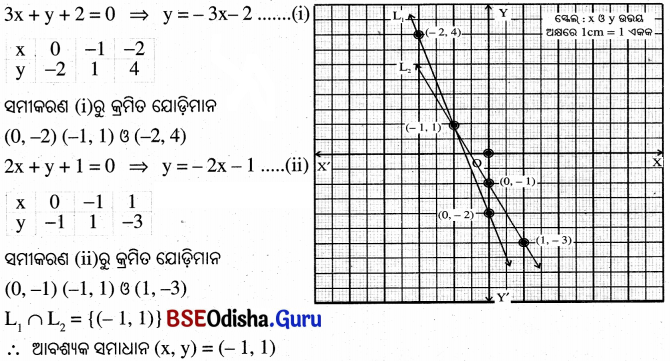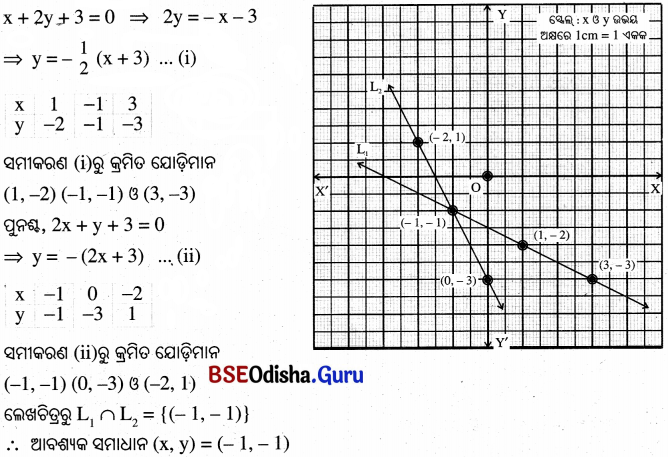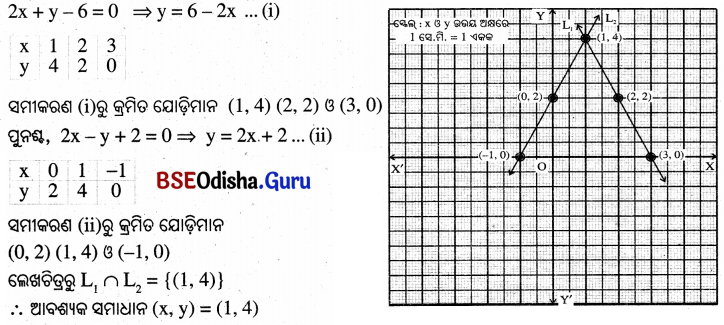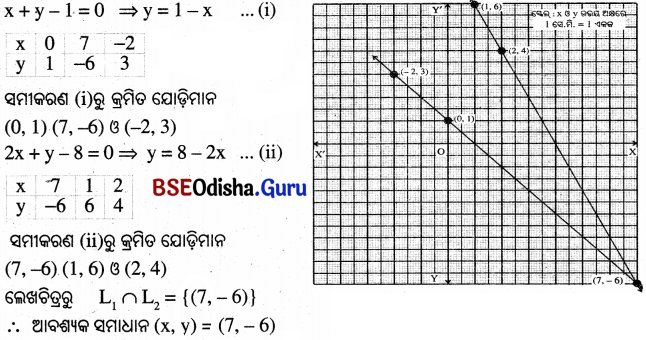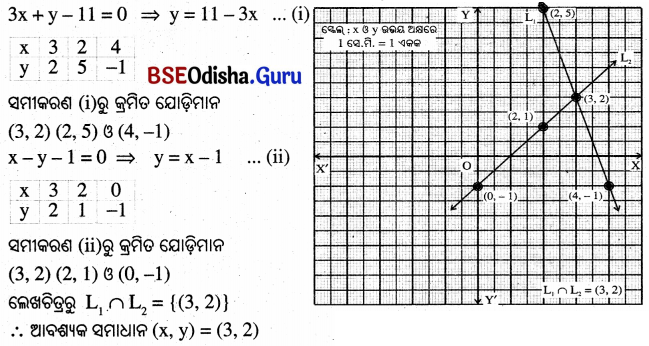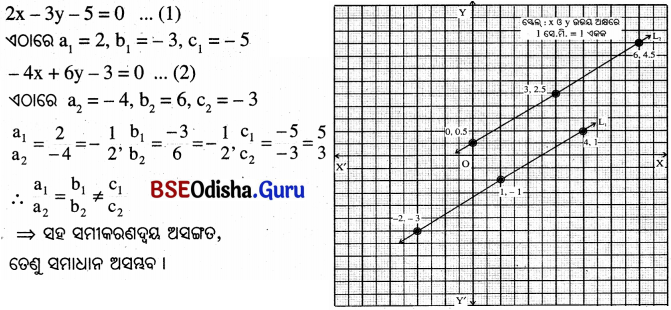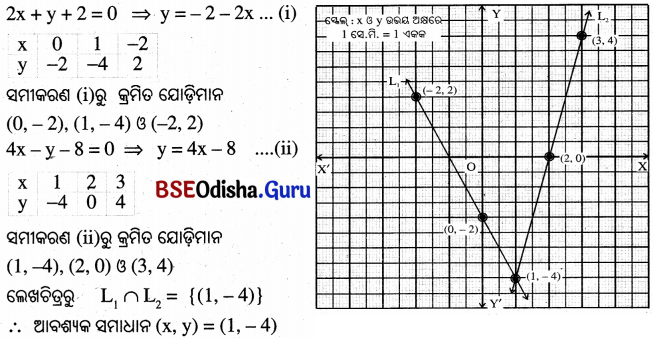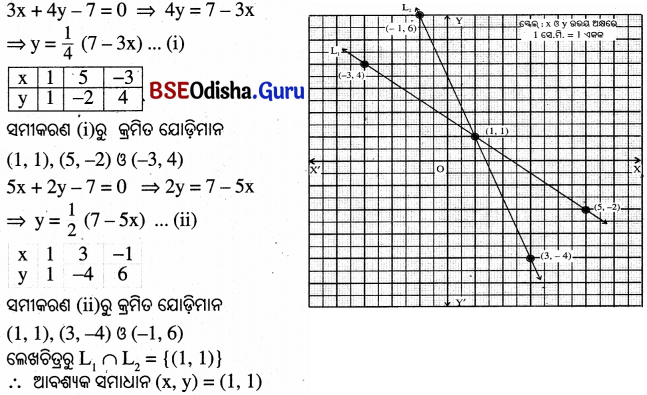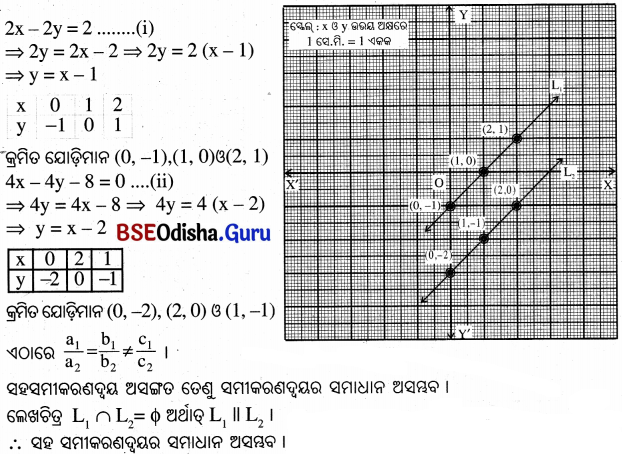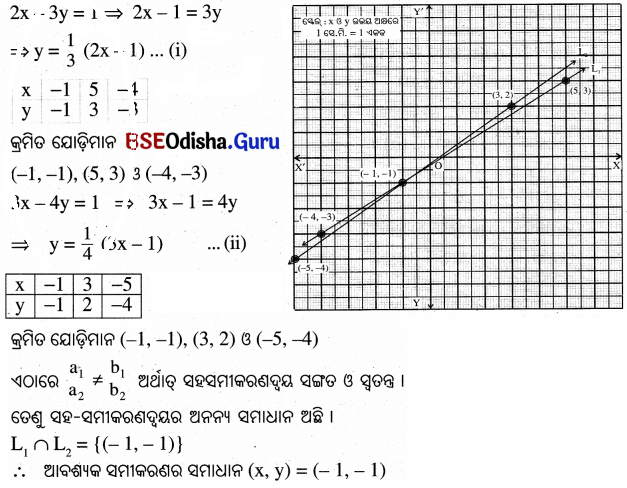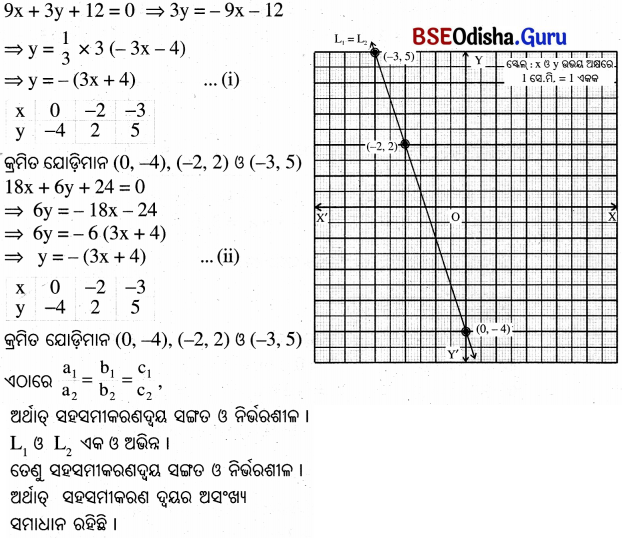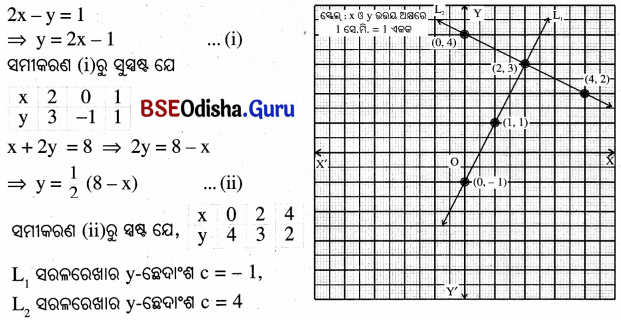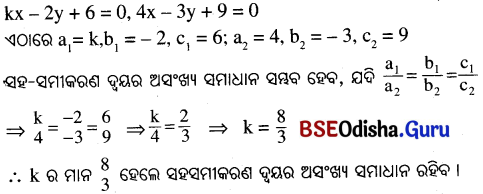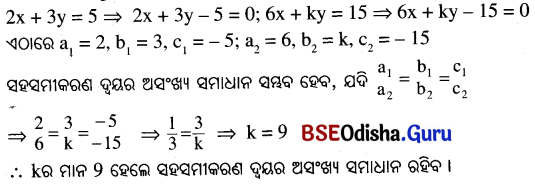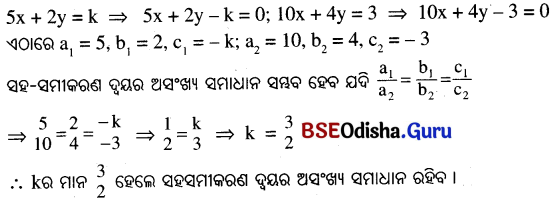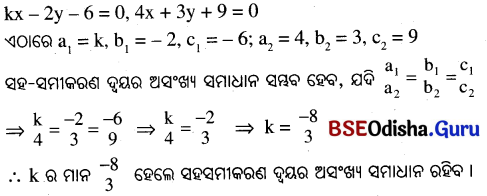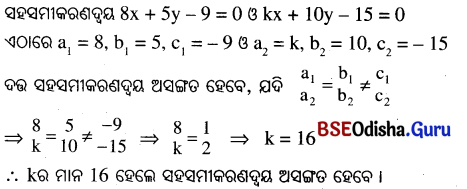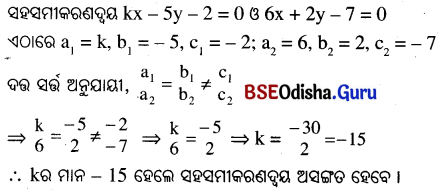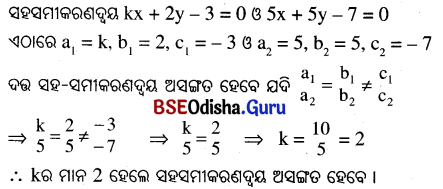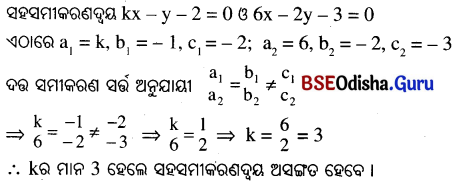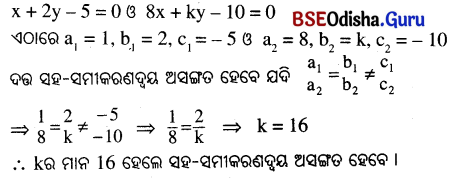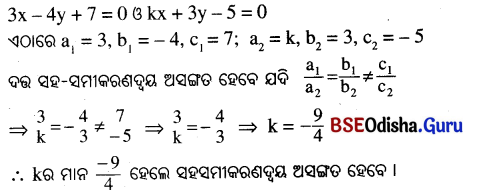Odisha State Board BSE Odisha 10th Class Hindi Solutions Poem 5 नीड़ का निर्माण फिर-फिर Textbook Exercise Questions and Answers.
BSE Odisha Class 10 Hindi Solutions Poem 5 नीड़ का निर्माण फिर-फिर
प्रश्न और अभ्यास (ପ୍ରଶ୍ନ ଔର୍ ଅଭ୍ୟାସ)
1. निम्नलिखित प्रश्नों के उत्तर दो-तीन वाक्यों में दीजिए:
(ନିମ୍ନଲିଖୂ ପ୍ରଶ୍ନୋ କେ ଉତ୍ତର୍ ଦୋ-ତୀନ୍ ୱାର୍କୋ ମେଁ ଦୀକିଏ : )
(ନିମ୍ନଲିଖତ ପ୍ରଶ୍ନଗୁଡ଼ିକର ଉତ୍ତର ଦୁଇ-ତିନୋଟି ବାକ୍ୟରେ ଉତ୍ତର ଦିଅ : )
(क) आँधी के कारण दिन कैसा दीखने लगा और क्यों?
(ଆଁଧୀ କେ କାରଣ ଦିନ୍ କୈସା ଦୀନେ ଲଗା ଔର କେଁ ?)
उत्तर:
आँधी के कारण दिन रात जैसा दिखने लगा। क्योंकि चारों ओर अंधेरा छा गया। रात का वातावरण चारों ओर छा गया।
(ख) आँधी की रात कैसे लग रही थी?
(ଆଁଧୀ କୀ ରାତ୍ର କୈସେ ଲଗ୍ ରହୀ ଥୀ ?)
उत्तर:
आँधी की रात और भी गहरी तथा काली लग रही थी। चारों ओर निस्तब्धता छा गई थी। लग रहा था जैसे इस रात का फिर से सबेरा न होगा।
(ग) तूफान की उग्रता से कौन-कौन से विनाश होने लगे?
(ରୂଫାନ୍ କୀ ଉଗ୍ରତା ସେ କୌନ୍-କୌନ୍ ସେ ବିନାଶ୍ ହୋନେ ଲଗେ ?)
उत्तर:
तूफान की उग्रता से सभी लोग भयभीत थे। ईंट पत्थर से बने महल ढहने लगे। पहाड़ काँपने लगे । बड़े-बड़े पेड़ उखड़कर जमीन पर गिरने लगे । तिनकों से बने नीड़ भी नष्ट हो गए ।
(घ) आँधी को कौन और कैसे नीचा दिखता है?
(ଆଁଧୀ କୋ କୌନ୍ ଔର୍ କୈସେ ନୀଚା ଦିଖାତା ହୈ ?)
उत्तर:
आँधी को एक छोटी सी चिड़िया नीचा दिखाती है। वह नए जीवन की आशा लेकर आसमान पर चढ़ जाती है। वह विपत्ति से डरती नहीं। वरन् डटकर उसका मुकाबला करती है।
(ङ) आँधी तूफान में भी कौन मुस्कुराता था?
(ଆଁଧୀ ତୁଫାନ୍ ମେଁ ଭୀ କୌନ୍ ମୁସ୍କୁରାତା ଥା ?)
उत्तर:
आँधी तूफान में भी उषा मुस्कुराती थी। वह आकाश के भयानक दाँतों जैसे- बज्रपात, तूफान, और घने बादलों को देखकर भी मंद मंद मुस्कुराती रहती है।
(च) नाश के दुख में किसका सुख नहीं दबता?
(ନାଶ୍ କେ ଦୁଖ୍ ମେଁ କିସ୍ ସୁଖ ନହୀ ଦବତା ?)
उत्तर:
नाश के दुःख में निर्माण का सुख नहीं दबता। फिर से नयी सृष्टि के गीत बार-बार गाये जाते हैं।
![]()
(छ) प्रलय की निस्तब्धता में किसका नव गान सुनाई पड़ता था?
(ପ୍ରଲୟ କୀ ନିସ୍ତବ୍ଧତା ମେଁ କିସ୍କା ନ ଗାନ ସୁନାଈ ପଡ଼ତା ଥା ?)
उत्तर:
प्रलय की निस्तब्धता में नयी सृष्टि का नव गान सुनाई पड़ता था, प्राणी मरता नहीं, बार-बार जीता है। उसी जीने को जीवन कहते हैं।
(ज) गृहस्थी जोड़ने में आनेवाली किन विपत्तियों का उल्लेख कवि ने किया है?
(ଗୃହସ୍ଥ ଜୋଡ଼ନେ ମେଁ ଆନେୱାଲୀ କିନ ବିପଭିର୍ୟା କା ଉଲ୍ଲେଖ କଣ୍ଟି ନେ କିୟା ହୈ ?)
उत्तर:
गृहस्थी जोड़ने में आनेवाली विपत्तियों जैसे- बज्रपात, आँधी, तूफान आदि का उल्लेख कवि ने किया है। क्योंकि मनुष्य नए-नए घरों का निर्माण बराबर करते हैं। उनमें अपने बच्चों और परिवार के दूसरे लोगों के प्रति स्नेह भाव होता है।
(झ) ‘विपत्तियों के बाद सुख के दिन आते हैं’ कवि ने इस भाव को किस प्रकार व्यक्त किया है?
(‘ବିପରିର୍ଲୋ କେ ବାଦ୍ ସୁଖ କେ ଦିନ୍ ଆତେ ହିଁ କ ନେ ଇସ୍ ଭାଙ୍ଗି କୋ କିସ୍ ପ୍ରକାର ବ୍ୟକ୍ତ କିମ୍ବା ହୈ ?)
उत्तर:
कवि कहते हैं कि विपत्ति के बाद सुख के दिन आते हैं। विनाश के वाद निर्माण होता है। प्रलय के वाद पुनः सृजन होता है। घनी अंधेरी रात के बाद मुस्काती उषा के दर्शन होते हैं।
(ञ) नीड़ के निर्माण से कवि का क्या तात्पर्य है?
(ନୀଡ଼୍ କେ ନିର୍ମାଣ ସେ କ କା କ୍ୟା ତାତ୍ପର୍ଯ୍ୟ ହୈ ?)
उत्तर:
निड़ के निर्माण से कवि कहता है कि विपत्तियाँ आति हैं। और उसका आसियँल तिखर चाता है। पर उसकि जाने के इच्छा शक्ति में स्नेह पाने की आशा में उसके आत्मविश्वास कोइ कमि नेहिं आति है। इसलिए वह बारबार अपने तिखरे हुए घरको समें तता हैं।
2. निम्नलिखित प्रश्नों के उत्तर एक शब्द या एक वाक्य में दीजिए:
(ନିମ୍ନଲିଖୂ ପ୍ରଶ୍ନୋ କେ ଉତ୍ତର୍ ଏକ୍ ଶବ୍ଦ ୟା ଏକ୍ ୱାକ୍ୟ ମେଁ ଦୀଜିଏ : )
(ନିମ୍ନଲିଖତ ପ୍ରଶ୍ନଗୁଡ଼ିକର ଉତ୍ତର ଗୋଟିଏ ଶବ୍ଦ ବା ଗୋଟିଏ ବାକ୍ୟରେ ଦିଅ : )
(क) आँधी उठने से नभ में क्या छा गया?
(ଆଁଧୀ ଉଗ୍ନେ ସେ ନଭ୍ ମେଁ କ୍ୟା ଛା ଗୟା ?)
उत्तर:
आँधी उठने से नभ में सहसा अंधेरा छा गया।
(ख) बादलों ने किस को घेरा?
(ବାଦଲୌ ନେ କିସ୍ କୋ ଘେରା ?)
उत्तर:
बादलों ने पृथ्वी (भूमि) को घेरा।
(ग) उषा की मुस्कान कैसी थी?
(ଉଷା କୀ ମୁସ୍କାନ୍ କୈସୀ ଥୀ ?)
उत्तर:
उषा की मुस्काम मोहिनी थी।
(घ) बड़े विटप कैसे उखड़ कर गिरे?
(ବଡ଼େ ବିଟପ୍ କୈସେ ଉଖଡ଼ କର୍ ଗିରେ ?)
उत्तर:
बड़े विटप जड़ समेत उखड़कर गिरे।
(ङ) तूफान में कैसा लग रहा था?
(ତୃଫାନ୍ ମେଁ କୈସା ଲଗ୍ ରହା ଥା ?)
उत्तर:
तुफान लग रहा था कि अब इस रात का फिर सवेरा नहीं होगा।
(च) रात कैसी थी?
(ରାତ୍ କୈସୀ ଥୀ ?)
उत्तर:
रात काली थी।
![]()
(छ) जन जन कैसे थे?
(ଜନ୍ ଜନ୍ କୈସେ ଥେ ?)
उत्तर:
जन-जन भयभीत थे।
(ज) कूहाँ से उषा आई?
(କହାଁ ସେ ଉଷା ଆଈ ?)
उत्तर:
प्राची से और क्रुद्ध नभ के बज्रदन्तों से उषा आई।
(झ) घोषले किससे विनिर्मित थे?
(ଘୋଷଲେ କିସସେ ବିନିର୍ମିତ ଥେ ?)
उत्तर:
घोंसले निनकों से विनिर्मित थे।
(ञ) गर्जनमय गगन के कंठ से कौन गाती थी?
(ଗର୍ଜନମୟ ଗଗନ କେ କଂଠ ସେ କୌନ ଗାତୀ ଥୀ ?)
उत्तर:
गर्जनमय गगन के कंठ से खंग – पंक्ति गाती थी।
(ट) चिड़िया चोंच में क्या लिए जा रही थी?
(ଚିଡ଼ିୟା ଚୌଚ ହେଁ କ୍ୟା ଲିଏ ଜା ରହୀ ଥୀ ?)
उत्तर:
चिड़िया चोंच में तिनका लिए जा रही थी।
भाषा-ज्ञान (ଭାଷା-ଜ୍ଞାନ)
1. निम्नलिखित के विपरीत शब्द लिखिए:
(ନିମ୍ନଲିଖିତ୍ କେ ବିପରୀତ ଶବ୍ଦ ଲିଖିଏ।)
(ନିମ୍ନଲିଖଗୁଡ଼ିକର ବିପରୀତ ଶବ୍ଦ ଲେଖ।)
काला, अँधेरा, क्रुद्ध, नीचा, सुख, नाश, दबता, महल
उत्तर:
काला – सफेद
अँधेरा – उजाला
क्रुद्ध – शांत
नीचा – ऊँचा
सुख – दुःख
नाश – निर्माण
दबता – उभरता
महल – झोंपड़ी
2. निम्नलिखित शब्दों के पर्यायवाची शब्द लिखिए :
(ନିମ୍ନଲିଖ୍ତ ଶର୍କୋ କେ ପର୍ଯ୍ୟାୟବାଚୀ ଶବ୍ଦ ଲିଗ୍ : )
(ନିମ୍ନଲିଖ୍ ଶବ୍ଦଗୁଡ଼ିକର ପର୍ଯ୍ୟାୟବାଚୀ ଶବ୍ଦ ଲେଖ।)
रात, बादल, चिड़िया, नीड़, सबेरा, निर्माण, गगन
उत्तर:
रात – निशा, यामिनी
चिड़िया – खग, विहंग
सबेरा – सुबह, प्रातःकाल
गगन – आकाश, आसमान
बादल – मेघ, घन
नीड़ – घोंसला, खोता
निमाण – सृष्टि, सृजन
![]()
3. निम्नलिखित शब्दों के अर्थ बताते हुए वाक्य में प्रयोग कीजिए:
(ନିମ୍ନଲିଖ୍ ଶବ୍ଦା କେ ଅର୍ଥ ବତାତେ ହୁଏ ୱାକ୍ୟ ମେଁ ପ୍ରୟୋଗ କୀଜିଏ : )
(ନିମ୍ନଲିଖ୍ ଶବ୍ଦଗୁଡ଼ିକର ଅର୍ଥ ପ୍ରକଟ କରି ବାକ୍ୟରେ ପ୍ରୟୋଗ କର ।)
निशा, वज्र, प्रलय, विहंगम, उत्पात, भूधर, प्राची
उत्तर:
निशा -रात – यह निशा भयंकर लग रही है।
वज्र – कठोर – भीम ने वज्र शपथ ली थी।
प्रलय – विनाश – प्रलय के बाद फिर से नया सृजन होता है।
विहंगम – पक्षी – हमें विहंगम से धैर्य और साहस की शिक्षा लेनी चाहिए।
उत्पात – उपद्रव – बंदरों ने उत्पात मचा रखा है।
भूधर पहाड- भारत अनेक बड़े-बड़े भूधर हैं।
प्राची पूर्व दिशा – प्राची से सूर्य उदय होता है।
4. निम्नलिखित वाक्यों को शुद्ध करके लिखिए:
(ନିମ୍ନଲିଖ୍ ବାର୍କୋ କୋ ଶୁଦ୍ଧ କରକେ ଲିଗ୍ : )
(ନିମ୍ନଲିଖ୍ ବାକ୍ୟଗୁଡ଼ିକୁ ଠିକ୍ କରି ଲେଖ । )
(क) निस्तब्धता छाया हुआ है।
उत्तर:
निस्तब्धता छाई हुई है।
(ख) काला रात आई।
उत्तर:
काली रात आई।
(ग) चिड़िया चहचहा रहा है।
उत्तर:
चिड़िया चहचहा रही है।
(घ) उषा मुस्कुराता है।
उत्तर:
उषा मुस्कुराती है।
है
(ङ) सृष्टि की नव गान हो रही है ।
उत्तर:
सृष्टि का नव गान ही रहा है।
(च) कंठ में खगपति गाती है।
उत्तर:
कंठ से खगपंक्ति गाती है।
(छ) नीड़ की निर्माण होती है।
उत्तर:
नीड़ का निर्माण होता है।
(ज) रात – सा दिन हो गई।
उत्तर:
रात – सा दिन हो गया।
![]()
5. निम्नलिखित वाक्यों के खाली स्थान की पूर्ति कोष्ठक में दिए गए शब्दों से कीजिए:
(ନିମ୍ନଲିଖ୍ ୱାର୍ଡୋ କେ ଖାଲୀ ସ୍ଥାନ୍ କୀ ପୂର୍ତ୍ତି କୋଷ୍ଠକ ମେଁ ଦିଏ ଗଏ ଶବ୍ଦା ସେ କୀଜିଏ : )
(ବନ୍ଧନୀ ମଧ୍ଯରୁ ଉପଯୁକ୍ତ ଶବ୍ଦ ବାଛି ନିମ୍ନଲିଖ୍ ବାକ୍ୟଗୁଡ଼ିକର ଶୂନ୍ୟସ୍ଥାନ ପୂରଣ କର।)
( उषा की, तिनका, दुःख, कंकड़, बादलों ने)
(क) धूलि धूसर ………………. भूमि को इस भाँति घेर।
उत्तर:
बादलों ने
(ख) प्राची से ……………….. मोहिनी मुसकान फिर-फिर!
उत्तर:
उषा की
(ग) डगमगाए जब कि …………………… ईट पत्थर के महल – घर
उत्तर:
कंकड़
(घ) नाश के. ……………….. से कभी दबता नहीं निर्माण का सुख।
उत्तर:
दुःख
(ङ) एक चिड़िया चोंच में ………………… लिए जो जा रही है।
उत्तर:
तिनका
अभ्यास कार्य
(क) इस कविता की आवृत्ति कीजिए और याद रखिए।
(ଇସ୍ କବିତା କୀ ଆବୃତ୍ତି କୀଜିଏ ଔର୍ ୟାଦ୍ ରଖିଏ ।)
(ଏହି କବିତାକୁ ଆବୃତ୍ତି କର ଓ ମନେରଖ ।)
(ख) ऐसी एक कविता लिखकर अपने मित्रों को सुनाइए।
(ଐସୀ ଏକ୍ କମ୍ପିତା ଲିଖକର୍ ଅପ୍ ମିର୍ତ୍ତୋ କୋ ସୁନାଇଏ ।)
(ଏହିପରି ଗୋଟିଏ କବିତା ଲେଖୁକରି ନିଜ ସାଙ୍ଗମାନଙ୍କୁ ଶୁଣାଇବ ।)
Very Short & Objective Type Questions with Answers
A. निम्नलिखित प्रश्नों के उत्तर एक वाक्य में दीजिए।
प्रश्न 1.
‘नीड़ का निर्माण’ कविता के कवि कौन हैं?
उत्तर:
‘नीड़ का निर्माण’ कविता के कवि हरिवंशराय बच्चन है।
प्रश्न 2.
हरिवंशराय बच्चन को किस उपाधी से सम्मानित किया गया?
उत्तर:
हरिवंशराय बच्चन को पद्मभूषण उपाधी से सम्मानित किया गया।
प्रश्न 3.
प्राची से फिर-फिर क्या दिखाई देती है?
उत्तर:
प्राची से फिर-फिर उषा की मोहिनी मुस्कान दिखाई देती है।
प्रश्न 4.
हवा के झोंकों से कौन काँपने लगे?
उत्तर:
हवा के झोंकों से बड़े-बड़े पर्बत काँपने लगे?
![]()
प्रश्न 5.
आशा का विहंगम क्या करता था?
उत्तर:
आशा का विहंगम फिर से आसमान में उड़कर स्वाभिमान में अपनी छाती को फुलाता है।
प्रश्न 6.
आँधी उठने से नभ में क्या छा गया?
उत्तर:
आँधी उठने से नभ में अंधेरा छा गया।
B. निम्नलिखित प्रश्नों के उत्तर एक शब्द / एक पद में दीजिए।
प्रश्न 1.
सृष्टि का नव गान कब सुनाई पड़ता है?
उत्तर:
प्रलय की निस्तब्धता में
प्रश्न 2.
क्रुद्ध नभ के बज्रदंतों में कौन मुस्कुराती है?
उत्तर:
उषा
प्रश्न 3.
कौन उनचास पवन को नीचा दिखाती है?
उत्तर:
एक चिडिया
प्रश्न 4.
नाश के दुख से कभी क्या नहीं दबता?
उत्तर:
निर्माण का सुख
प्रश्न 5.
विहंगम गर्व से निज वक्ष फिर-फिर कैसे उठाता है?
उत्तर:
गगन पर चढ़कर
![]()
प्रश्न 6.
बड़े-बड़े महल कब डगमगाए?
उत्तर:
जब झोंके वह चले
प्रश्न 7.
हवा के झोंको से कौन काँपने लगे?
उत्तर:
पर्बत
प्रश्न 8.
‘नीड़ का निर्माण’ कविता के कवि कौन है?
उत्तर:
हरिवंशराय वच्चन
प्रश्न 9.
प्राची से कौन आई?
उत्तर:
उषा
प्रश्न 10.
चिड़िया क्यों फिर-फिर नीड़ का निर्माण करती है?
उत्तर:
नेह के आह्वान के लिए
C. रिक्त स्थानों की पूर्ति कीजिए।
प्रश्न 1.
उषा की मुस्कान …………………थी।
उत्तर:
मोहिनी
प्रश्न 2.
घोसले ………………… से निर्मित थे।
उत्तर:
तिनकों
प्रश्न 3.
चिड़िया चोंच में …………………. लिए जा रही थी।
उत्तर:
तिनका
प्रश्न 4.
नाश के दुःख में ……………….. का सुख नहीं दबता।
उत्तर:
निर्माण
प्रश्न 5.
बड़े-बड़े विटप ……………..उखड़कर गिरे।
उत्तर:
जड़-समेत
![]()
प्रश्न 6.
गर्जनमय कंठ से …………….. गाती थी।
उत्तर:
खग
प्रश्न 7.
बादलों का भूमि को घेरने का परिणाम …………………… हो गया।
उत्तर:
दिन रात – सा
प्रश्न 8.
झोंकों के बहने से ……………… डगमगा गए।
उत्तर:
महल
प्रश्न 9.
उषा ………………… से आई?
उत्तर:
प्राची
D. ठिक् या भूल लिखिए।
प्रश्न 1.
आँधी को गिलहरियाँ नीचा दिखाती है।
उत्तर:
भूल
प्रश्न 2.
फिर-फिर सृष्टि का नव गान सुनाई पड़ता है|
उत्तर:
ठिक्
प्रश्न 3.
बादलों ने सूर्य को घेरा।
उत्तर:
भूल
प्रश्न 4.
बार-बार नीड़ आह्वान देता है।
उत्तर:
भूल
प्रश्न 5.
धूलि – धूसर बादलों ने भूमि को घेरा।
उत्तर:
ठिक्
![]()
प्रश्न 6.
सभी जन भयभीत हो गए, जब रात काली और लंबी हो गई।
उत्तर:
ठिक्
प्रश्न 7.
आसमान जब क्रुद्ध हो जाता है, तब उषा मुस्कुराती है।
उत्तर:
ठिक्
प्रश्न 8.
‘नीड़ का निर्माण’ कविता में दिन परिवर्त्तित रात में हो गया।
उत्तर:
ठिक्
प्रश्न 9.
आशा का विहंगम घमण्ड से छाती फुलाता है।
उत्तर:
भूल
Multiple Choice Questions (mcqs) with Answers
सही उत्तर चुनिए : (MCQS)
1. सृष्टि का नव गान कब सुनाई पड़ता है?
(A) घोर गर्जन में
(B) प्रलय की निस्तब्धता में
(C) डगमगाए कदमों में
(D) क्रुद्ध बज्रदंत में
उत्तर:
(B) प्रलय की निस्तब्धता में
2. क्रुद्ध नभ के बज्रदंतों में कौन मुस्कुराती है?
(A) प्राची
(B) उषा
(C) आशा
(D) चिडिया
उत्तर:
(B) उषा
3. कौन उनचास पवन को नीचा दिखाती है?
(A) एक बज्रदंत
(B) एक चिडिया
(C) एक क्रुद्ध मनुष्य
(D) एक तेज घोडा
उत्तर:
(B) एक चिडिया
4. नाश के दुख से कभी क्या नहीं दबता?
(A) निर्माण का दुख
(B) परित्राण का सुख
(C) निर्माण का सुख
(D) प्रमाण का मुख
उत्तर:
(C) निर्माण का सुख
![]()
5. विहंगम गर्व से निज वक्ष फिर-फिर कैसे उठाता है?
(A) गगन पर चढ़कर
(B) घोंसले में छिपकर
(C) घोर गर्जन से गाकर
(D) मोहिनी मुसकान से
उत्तर:
(A) गगन पर चढ़कर
6. बादलों ने किस को घेरा?
(A) चन्द्रमा
(B) सूर्य
(C) पृथ्वी
(D) आसमान
उत्तर:
(C) पृथ्वी
7. हवा के झोंको से कौन काँपने लगे?
(A) पर्बत
(B) प्रासाद
(C) घोंसला
(D) पेड़
उत्तर:
(A) पर्बत
8. ‘नीड़ का निर्माण’ कविता के कवि कौन है?
(A) मैथिली शरण गुप्त
(B) अयोध्यासिंह उपाध्याय ‘हरिऔध’
(C) रामेश्वरशुक्ल अंचल
(D) हरिवंशराय वच्चन
उत्तर:
(D) हरिवंशराय वच्चन
9. जन-जन कैसे थे?
(A) सुख
(B) भयभीत
(C) दुःख
(D) रोने
उत्तर:
(B) भयभीत
10. प्राची से कौन आई?
(A) निशा
(B) प्रलय
(C) उषा
(D) किरण
उत्तर:
(C) उषा
11. उषा की मुस्कान कैसी थी?
(A) खामोशी
(B) मोहिनी
(C) सुखद
(D) कठोर
उत्तर:
(B) मोहिनी
12. रात कैसी थी?
(A) प्रलय
(B) सफेद
(C) काली
(D) डगमगाई
उत्तर:
(C) काली
![]()
13. क्रुद्ध का अर्थ छँटिए
(A) राज
(B) नाराज
(C) भयंकर
(D) कलंकित
उत्तर:
(B) नाराज
14. घोसले किससे बिनिर्मित थे?
(A) ईंट से
(B) पत्थर से
(C) कंकड़ से
(D) तिनकों से
उत्तर:
(D) तिनकों से
15. आँधी को कौन नीचा दिखाती है?
(A) चिड़िया
(B) गिलहरिया
(C) मोरनी
(D) कौवा
उत्तर:
(A) चिड़िया
यह कविता
देखा जाता है कि चिड़ियाँ अपने नीड़ या घोंसले को बार-बार बनाती हैं। ऐसे मनुष्य भी नये-नये घरों का निर्माण बराबर करते रहते हैं। रहने के लिए वे उनको बनाते हैं, क्योंकि उनमें अपने बच्चों और परिवार के दूसरे लोगों के प्रति स्नेह भाव होता है। प्राणी की यह जीने की इच्छा अदम्य है। इसलिए नीड़ या घर बार-बार टूटने पर भी पक्षी और नर-नारी उसे बनाते रहते हैं। छोटे लोगों का जीवन, छोटी चिड़िया का नीड़, आँधी तूफान में, अंधेरे में, धूल की आँधी में घिर जाता है।
अर्थात् पृथ्वी पर बार-बार विपत्तियाँ आती हैं। कभी विपत्ति भयानक होती है तो दिन में रात सा अंधेरा हो जाता है। रात भी घन अंधकार में डूब जाती है। लगता है कि क्या सवेरा नहीं होगा? सबके सब भीतत्रस्त हो जाते हैं। इतने में पूर्व दिशा से हँसती हुई उषा-रानी आ जाती है।
भयंकर दुःख से सुख की यह किरण नये जीवन के लिए प्रेरणा देती है। यह स्नेह और प्रेम का आह्वान है। जब बड़े तूफान से पृथ्वी काँप उठती है, बड़े बड़े पेड़ उखड़ जाते हैं, उनकी डाल पर घोंसले कहाँ उड़कर टूट बिखर जाते हैं और तो और, बड़े बड़े मकान जो ईंट पत्थर से बने होते हैं, बड़े मजबूत होते हैं वे भी ढह जाते हैं। उस वक्त एक छोटी सी चिड़िया नये जीवन की आशा लेकर आसमान पर चढ़ जाती है। वह विपत्ति से डरती नहीं। चाहे जो हो, नीड़ का निर्माण फिर करेगी। कुछ मनुष्य भी ऐसे ही उत्साही होते हैं। आकाश के बड़े ଶବ୍ଦ ହୋ ଗାଁ (ଜ୍ୟାମ, ପୀ, ପୁ, ପକ ୩୯ 32) à 3୩ ପ୍ରd ୪ । ସ୍ପଷ ମାe Rsd हैं तब चिड़ियाँ चहचहाती भी हैं।
तेज हवा के भीतर चिड़िया चोंच में तिनका लेकर उड़ जाती है। वह उनचास पवन (बड़ी तेज हवा ) की भी परवाह नहीं करती। नाश से दुःख तो होता है। लेकिन उसको निर्माण या सृजन का सुख दबा देता है। नीचा दिखा देता है। प्रलय होता है। उसके चारों ओर सन्नाटा छा जाता है। लेकिन फिर से नयी सृष्टि के गीत भी बार बार गाये जाते हैं। प्राणी मरता नहीं, बार बार जीता है। इसी जीने को जीवन कहते हैं।
ଏହି କବିତା
ଆମେ ଦେଖୁ ଯେ ଚଢ଼େଇମାନେ ସେମାନଙ୍କର ବସା ବାରମ୍ବାର ତିଆରି କରନ୍ତି। ଏହିପରି ମଣିଷ ମଧ୍ୟ ନୂଆ ନୂଆ ଘରସବୁ ନିର୍ମାଣ ବାରମ୍ବାର କରିଥା’ନ୍ତି। ସେମାନେ ରହିବାପାଇଁ ଘରସବୁ ତିଆରି କରନ୍ତି ଯେହେତୁ ସେଥିରେ ନିଜର ପିଲାଛୁଆ ଓ ପରିବାରର ଅନ୍ୟ ସଦସ୍ୟଙ୍କ ପ୍ରତି ସ୍ନେହଭାବ ରହିଥାଏ। ପ୍ରାଣୀର ଏହି ବଞ୍ଚିବାର ଇଚ୍ଛା ଅଦମ୍ୟ। ଏଣୁ, ଘର ବା ବସା ବାରମ୍ବାର ଭାଙ୍ଗିଗଲେ ମଧ୍ୟ ପକ୍ଷୀ ଓ ନର-ନାରୀ ତାହାକୁ ତିଆରି କରନ୍ତି।
ଛୋଟ ଲୋକଙ୍କ ଜୀବନ, ଛୋଟ ଚଢ଼େଇର ବସା, ଝଡ଼ ବାତ୍ୟାରେ, ଅନ୍ଧାରରେ, ଧୂଳି ଝଡ଼ର ସମ୍ମୁଖୀନ ହୋଇଥାଏ। ଅର୍ଥାତ୍ ପୃଥିବୀ ଉପରେ ବାରମ୍ବାର ବିପରି ପଡ଼ିଥାଏ। କେତେବେଳେ ବିପତ୍ତି ଭୟଙ୍କର ହୁଏ ଓ ଦିନରେ ରାତି ପରି ଅନ୍ଧକାର ଘୋଟିଆସେ। ରାତି ମଧ୍ଯ ଘନ ଅନ୍ଧକାରରେ ବୁଡ଼ିଯାଏ। ଲାଗେ ଯେମିତି ଆଉ ସକାଳ ହେବ ନାହିଁ। ସମସ୍ତେ ଭୟଭୀତ ହୋଇଯା’ନ୍ତି। ଏହି ସମୟରେ ପୂର୍ବ ଦିଗରେ ଉଷାରାଣୀ ହସି ହସି ଆସନ୍ତି।
ଭୟଙ୍କର ଦୁଃଖରେ ସୁଖର ଏହି କିରଣ ଟିକକ ନୂଆ ଜୀବନ ପାଇଁ ପ୍ରେରଣା ଦେଇଥାଏ। ଏହା ସ୍ନେହ ଓ ପ୍ରେମର ଆହ୍ବାନ। ଯେତେବେଳେ ବଡ଼ ତୋଫାନରେ ପୃଥିବୀ ଥରିଉଠେ, ବଡ଼ ବଡ଼ ଗଛ ଉପୁଡ଼ି ପଡ଼େ, ସେ ଡାଳରେ ଥିବା ବସାଗୁଡ଼ିକ ଭାଙ୍ଗିଯାଇ କେଉଁଠି ଯାଇ ପଡ଼େ। ବଡ଼ ବଡ଼ ଘର ଯାହା ଇଟା ପଥରରେ ତିଆରି ହୋଇଥାଏ ତାହା ମଧ୍ୟ ଚୁରମାର ହୋଇଯାଏ।
ସେ ସମୟରେ ଗୋଟିଏ ଛୋଟ ଚଢ଼େଇଟି ନୂଆ ଜୀବନର ଆଶା ନେଇ ଆକାଶରେ ଉଡ଼ିବୁଲେ। ସେ ବିପଦକୁ ଡରେ ନାହିଁ। ଯାହା ହେଉ ପଛେ ସେ ପୁଣି ଥରେ ବସା ବାନ୍ଧିବ। କିଛି ମଣିଷ ମଧ୍ୟ ଏହିପରି ଉତ୍ସାହୀ ଅଛନ୍ତି। ଆକାଶର ବଡ଼ ବଡ଼ ଦାନ୍ତଗୁଡ଼ିକ (ବଜ୍ରପାତ, ଝଡ଼, ବାତ୍ୟା, କଳାହାଣ୍ଡିଆ ମେଘ) ଦେଖକରି ଉଷା ମୁରୁକି ହସା ମାରୁଥାଏ। ଯେତେବେଳେ ଘଡ଼ଘଡ଼ି ମାରୁଥାଏ ସେତେବେଳେ ଚଢ଼େଇ ଚେଁ ଚେଁ କରୁଥାଏ। ଜୋର ପବନ ବହୁଥିବା ସମୟରେ ଚଢ଼େଇ ତା’ ଥଣ୍ଟରେ ଶୁଖିଲା କାଠି ବା ଘାସ ଖଣ୍ଡେ ଧରି ଉଡ଼ିଯାଏ। ସେ ଅଣଚାଶ ପବନକୁ ମଧ୍ୟ ଭୟ କରେ ନାହିଁ।
ନଷ୍ଟ ହେଲେ ଦୁଃଖ ହୁଏ। କିନ୍ତୁ ତାହାକୁ ନିର୍ମାଣ ବା ସୃଜନର ସୁଖ ଦାବି ଦିଏ। ତାକୁ ନୀଚ କରିଦିଏ। ପ୍ରଳୟ ହୁଏ। ତା’ ଚାରିପଟେ ନିସ୍ତବ୍ଧ ଛାଇଯାଏ। କିନ୍ତୁ ନୂଆ ସୃଷ୍ଟିରେ ଗୀତ ମଧ୍ୟ ବାରମ୍ବାର ଗାଆନ୍ତି। ପ୍ରାଣୀ ମରେ ନାହିଁ। ସେ ବାରମ୍ବାର ଜନ୍ମ ନିଏ। ଏହିପରି ବଞ୍ଚିବାକୁ ହିଁ ଜୀବନ କହନ୍ତି।
(i) नीड़ का निर्माण फिर-फिर
नेह का आह्वान फिर-फिर।
वह उठी आँधी कि नभ में
छा गया सहसा अंधेरा,
धूलि – धूसर बादलों ने
भूमि को इस भाँति घेरा।
रात सा दिन हो गया,
फिर रात आई और काली,
लग रहा था अब न होगा
इस निशा का फिर सबेरा,
रात के उत्पात – भय से
भीत जन-जन, भीत कण-कण
किन्तु प्राची से उषा की
मोहिनी मुसकान फिर-फिर।
नीड़ का निर्माण फिर-फिर,
नेह का आह्वान फिर-फिर।
ନୀଡ଼୍ କା ନିର୍ମାଣ୍ଡ୍ ଫିର୍-ଫିର୍
ନେହ କା ଆହ୍ବାନ୍ ଫିର୍-ଫିର୍।
ହ ଉଠୀ ଆଧୀ କି ନଭ୍ ମେଁ ଛା
ଗୟା ସହସା ଅଂଧେରା,
ଧୂଲି-ଧୂସର ବାଦଲୌ ନେ
ଭୂମି କୋ ଇସ୍ ର୍ଜାତି ଘେରା।
ରାଡ୍ ସା ଦିନ୍ ହୋ ଗୟା, ଫିର୍
ରାତ୍ ଆଈ ଔର୍ କାଲ,
ଲଗ୍ ରହା ଥା ଅବ୍ ନ ହୋଗା
ଇସ୍ ନିଶା କା ଫିର୍ ସବେରା
ରାତ୍ କେ ଉତ୍ପାତ୍-ଭୟ ସେ
ଭୀତ କନ୍-ଜନ୍, ଭୀତ କଣ୍ଠ-କଣ୍ଠ,
କିନ୍ତୁ ପ୍ରାଚୀ ସେ ଉଷା
କୀ ମୋହିନୀ ମୁସ୍କାନ୍ ଫିର୍-ଫିର୍।
ନୀଜ୍ କା ନିର୍ମାଣ୍ ଫିର୍-ଫିର,
ନେହ କା ଆହ୍ବାନ୍ ଫିର୍-ଫିର୍।
हिन्दी व्याख्या:
कवि कहते हैं कि नीड़ या घोंसले का निर्माण बारबार होता है। स्नेह और प्रेम का आह्वान भी बार बार होता है। आँधी तूफान में, अंधेरे में, धूल की आँधी में पृथ्वी बारबार घिर जाती है। कभी विपत्ति भयानक होती है तो कभी दिन में रात सा अंधेरा छा जाता है। रात भी घन अंधकार में डूब जाती है। ऐसा जान पड़ता है कि कभी सवेरा नहीं होगा। सभी भयभीत हो जाते हैं। इतने में पूर्व दिशा में से हँसती हुई उषा रानी आ जाती है। भयंकर दुःख से सुख की यह किरण नये जीवन के लिए प्रेरणा देती है। यह स्नेह और प्रेम का आह्वान है।
ଓଡ଼ିଆ ଅନୁବାଦ:
କବିଙ୍କ ମତରେ ବସା ବା ଘର ମନୁଷ୍ୟ ବା ଚଢ଼େଇମାନେ ବାରମ୍ବାର ତିଆରି କରନ୍ତି। ସେଥିରେ ଥାଏ ସ୍ନେହ ଓ ପ୍ରେମର ନିଚ୍ଛକ ଛବି। ପୃଥିବୀ ଉପରେ ବାରମ୍ବାର ବିପରି ପଡ଼ିଥାଏ। ଛୋଟ ଛୋଟ ଲୋକଙ୍କ ଜୀବନ, ଛୋଟ ଚଢ଼େଇ ବସା, ଝଡ଼ ବାତ୍ୟାରେ, ଅନ୍ଧାରରେ, ଧୂଳିଝଡ଼ ସମ୍ମୁଖୀନ ହୋଇଥା’ନ୍ତି। କେବେ କେବେ ଦିନରେ ରାତି ପରି ଅନ୍ଧାର ମାଡ଼ି ଆସେ। ସୂର୍ଯ୍ୟ ଦୃଶ୍ୟମାନ ହୁଅନ୍ତି ନାହିଁ। ରାତିଦିନ ସମାନ ହୋଇଯାଏ। ଏପରି ଜଣାଯାଏ ଯେ ଆଉ ସକାଳ ହେବ ଦୁଃଖରେ ସୁଖର ଏହି କିରଣ ଟିକକ ନୂଆ ଜୀବନ ପାଇଁ ପ୍ରେରଣା ଦେଇଥାଏ। ଏହା ସ୍ନେହ ଓ ପ୍ରେମର ଆହ୍ୱାନ।
(ii) वह चले झोंके कि काँपे
भीम कायाबान भूधर,
जड़ समेत उखड़ – पुखड़ कर
गिर पड़े, टूटे बिटप बर।
हाय तिनकों से बिनिर्मित
घोंसलों पर क्या न बीती!
डगमगाए जब कि कंकड़,
ईंट, पत्थर के महल – घर
बोल आशा के बिहंगम,
किस जगह पर तू छिपा था,
जो गगन पर चढ़ उठाता
गर्ब से निज बक्ष फिर-फिर!
नीड़ का निर्माण फिर-फिर
नेह का आह्वान फिर-फिर।
ୱହ୍ ଚଲେ ଝୋକେ କି କାଁପେ
ଭୀମ୍ କାୟାବାନ୍ ଭୂଧର୍,
ଜଡ଼ ସମେତ ଉଖଡ଼-ପୁଖଡ଼୍ କର୍
ଗିର୍ ପଡ଼େ, ଟୁଟେ ବିଟପ୍ ବର୍।
ହାୟ ତିନ୍ ସେ ବିନିର୍ମିତ
ଘୋସଲୌ ପର୍ କ୍ୟା ନ ବୀତୀ!
ଡଗମଗାଏ ଜବ୍ କି କଂକଡ଼,
ଇଁଟ୍, ପହର କେ ମହଲ୍-ଘର୍।
ବୋଲ୍ ଆଶା କେ ବିହଂଗମ୍,
କିସ୍ ଜଗହ ପର୍ ତୂ ଛିପା ଥା,
ଜୋ ଗଗନ୍ ପର୍ ଚଢୁ ଉଠାତା
ଗର୍ବ ସେ ନିଜ ବକ୍ଷ ଫିର-ଫିର!
ନୀଡ଼୍ କା ନିର୍ମାଣ୍ ଫିର୍-ଫିର୍,
ନେହ କା ଆହ୍ଵାନ ଫିର୍-ଫିର୍।
हिन्दी व्याख्या:
जब बड़े तूफान से पृथ्वी काँप उठती है, बड़े बड़े पेड़ उखड़कर पृथ्वी पर गिर जाते हैं तो उस पेड़ पर तिनकों से बनी घोंसले का क्या हाल हुआ न होगा। बड़े बड़े मकान जो ईंट-पत्थर से बने होते हैं वे भी ढह जाते हैं। उस समय एक छोटी सी चिड़िया नये जीवन की आशा के साथ आसमान पर चढ़ जाती है। वह बिपत्ति नहीं डरती। चाहे जो भी हो जाए, वह नीड़ का निर्माण फिर से जरूर करेगी। वह कभी भी हार नहीं मानेगी।
ଓଡ଼ିଆ ଅନୁବାଦ:
ଯେତେବେଳେ ବଡ଼ ତୋଫାନରେ ପୃଥ୍ବୀ ଥରିଉଠେ, ବଡ଼ ବଡ଼ ଗଛ ଉପୁଡ଼ି ପଡ଼େ, ଡାଳରେ ଥିବା ବସାଗୁଡ଼ିକ ଭାଙ୍ଗିଯାଇ କେଉଁଠି ପଡ଼େ ତାହାର ଠିକଣା ନାହିଁ। ବଡ଼ ବଡ଼ ଘର ଯାହା ଇଟା ପଥରରେ ତିଆରି ହୋଇଥାଏ ତାହା ମଧ୍ୟ ଚୁରମାର୍ ହୋଇଯାଏ। ସେ ସମୟରେ ଗୋଟିଏ ଛୋଟ ଚଢ଼େଇଟି ନୂଆ ଜୀବନର ଆଶା ନେଇ ଆକାଶରେ ଉଡ଼ିବୁଲେ। ସେ ବିପଦକୁ ଖାତିର କରେ ନାହିଁ। ଯାହାହେଉ ପଛେ ସେ ପୁଣି ଥରେ ବସା ବାନ୍ଧିବ।
![]()
(iii) क्रुद्ध नभ के बज्रदंतों
में उषा है मुस्कुराती,
घोर गर्जन – भय गगन के
कंठ से खग – पंक्ति गाती।
एक चिड़िया चोंच में तिनका
लिए जो जा रही है,
वह सहज में ही पवन
उंचास को नीचा दिखाती!
नाश के दुख से कभी
दबता नहीं निर्माण का सुख
प्रलय की निस्तब्धता से
सृष्टि का नब गान फिर-फिर!
नीड़ का निर्माण फिर-फिर
नेह का आह्वान फिर फिर।
କ୍ରୁଦ୍ଧ ନଭ୍ କେ ବଜ୍ରଦଂର୍ଡୋ
ମେଁ ଉଷା ହୈ ମୁସ୍କୁ ରାତୀ,
ଘୋର ଗର୍ଜନ-ମୟ ଗଗନ୍ କେ
କଂଠ ସେ ଖଗ-ପଂକ୍ତି ଗାତୀ।
ଏକ ଚିଡ଼ିୟା ଚୌଚ ମେଁ ତିନ୍ ଲିଏ
ଜୋ ଜା ରହୀ ହୈ,
ଗୃହ ସହଜ ମେଁ ହୀ ପନ
ଉଁଚାସ କୋ ନୀଚା ଦିଖାତୀ!
ନାଈ କେ ଦୁଖ ସେ କଭୀ
ଦବତା ନହୀ ନିର୍ମାଣ୍ କା ସୁଖ୍
ପ୍ରଲୟ କୀ ନିସ୍ତବ୍ଧତା ସେ
ସୃଷ୍ଟି କା ନୱେ ଗାନ୍ ଫିର୍-ଫିର୍!
ନୀଡ଼୍ କା ନିର୍ମାଣ୍ ଫିର୍-ଫିର୍
ନେହ କା ଆହ୍ଵାନ ଫିର୍-ଫିର୍।
हिन्दी व्याख्या:
आकाश के बड़े बड़े दाँतों (बज्रपात, आँथी, तूफान, घने बादल आदि) से ऊषा मुस्कुराती है। जब बादल गरजते हैं तब चिड़िया चहचहाती है। तेज हवा के भीतर चिड़िया चोंच में तिनका लेकर उड़ जाती है। बह उनचास पवन की भी परवाह नहीं करती। नाश से दुःख तो होता है। लेकिन उस दुःख को निर्माण का सुख दबा देता है। उसे नीचा दिखा देता है। प्रलय होता है। उसके चारों ओर सन्नाटा छा जाता है। लेकिन फिर से तभी सृष्टि के गीत भी बार बार गाए जाते हैं। प्राणी मरता नहीं, जीता है। इसी जीने को जीवन कहते हैं।
ଓଡ଼ିଆ ଅନୁବାଦ:
ଓଡ଼ିଆ ଅନୁବାଦ ଆକାଶର ବଡ଼ ବଡ଼ ଦାନ୍ତଗୁଡ଼ିକ (ବଜ୍ରପାତ, ଝଡ଼, ବାତ୍ୟା, କଳାହାଣ୍ଡିଆ ମେଘ) ଦେଖ୍ କରି ଉଷା ମୁରୁକିହସା ମାରୁଥାଏ। ଯେଉଁ ସମୟରେ ଘଡ଼ଘଡ଼ି ମାରୁଥାଏ ସେହି ସମୟରେ ଚଢ଼େଇ ଚେଁ ଚେଁ କରୁଥାଏ। ଜୋର ପବନ ବହୁଥିବା ସମୟରେ ଚଢ଼େଇ ତା’ ଥଣ୍ଟରେ ଶୁଖୁଲା କାଠି ବା ଘାସ ଖଣ୍ଡେ ଧରି ଉଡ଼ିଯାଏ। ସେ ଅଣଚାସ ପବନକୁ ଭୟ କରେ ନାହିଁ। ନଷ୍ଟ ହେଲେ ଦୁଃଖ ମଧ୍ୟ ହୁଏ। କିନ୍ତୁ ତାହାକୁ ନିର୍ମାଣର ସୁଖ ଦାବି ଦିଏ। ପ୍ରଳୟ ହୁଏ। ତାହା ଚାରିପଟେ ନିସ୍ତବ୍ଧ ଛାଇଯାଏ। କିନ୍ତୁ ନୂଆ ସୃଷ୍ଟିରେ ଗୀତ ମଧ୍ୟ ବାରମ୍ବାର ଗାଆନ୍ତି। ପ୍ରାଣୀ ମରେ ନାହିଁ। ସେ ବାରମ୍ବାର ଜନ୍ମ ନିଅ। ଏହିପରି ବଞ୍ଚିବାକୁ ହିଁ ଜୀବନ କୁହାଯାଏ।
![]()
शबनार: (ଶରାର୍ଥି)
नीड़ – घोंसला (ସ୍ନେହ)।
आह्वान – बुलावा (ଆକାଶ)।
सहसा – अचानक (ପ୍ରକାର)।
निशा – रात (ସକାଳ)।
भीत – डराहुआ (ଉପଦ୍ରବ)।
प्राची – पूर्व दिशा (ସକାଳ)।
नेह – स्नेह (ସ୍ନେହ)।
नभ – आकाश (ଆକାଶ)।
भाँति – प्रकार (ପ୍ରକାର)।
सबेरा – सुबह (ସକାଳ)।
उत्पात – उपद्रव (ଉପଦ୍ରବ)।
उषा – प्रातः (ସକାଳ)।
कण-कण – चारों ओर (ଚାରିଆଡ଼)।
मोहिनी – आकर्षक (ଆକର୍ଷକ)।
भीम कायावन – बड़े शरीर वाले (ଭୀମକାୟ ଶରୀର)
भूधर – पहाड़ (ପାହାଡ଼)।
उखड़-पुखड़ – उखड़ना (ଉପୁଡ଼ିପଡ଼ିବା)।
विटप – पेड़ (ଗଛ)।
तिनकों से – सूखे घास (ଶୁଖୁଲା ଘାସକାଠି)।
कंकड़ – पत्थर (ପଥର)।
विहंगम – पक्षी (ପକ୍ଷୀ)।
कुद्ध – नाराज (ଦୁଃଖୀ)।
मुस्कुराती – मुस्काती (ମୁରୁକି ହସି)।
चोंच – चोंच (ମୁରୁକି ହସି)।
नाश – नष्ट (ନଷ୍ଟ)।
निस्तब्धता – नीरगता (ନୀରବତା)।
समेत – सहित (ସହିତ)।
मुस्कान – मृदुहास (ମୃଦୁହସ)।
जड़ – मूल (ମୂଳ)।
टूरे – टूट गए (ଭାଙ୍ଗିଗଲେ)।
वर – श्रेष्ठ (ଶ୍ରେଷ୍ଠ)।
विनिर्मित – बना हुआ (ତିଆରି ହୋଇଥିବା)।
डग मगाए – हिल गए (ହଲିଗଲେ)।
गगन – आसमान (ଆକାଶ )।
बज्र – केठोर ( କଠୋର)।
खग-पंक्ति- पक्षियों की कतार (ପଷ୍ ଙ୍କରଧାଡ଼ି)
सहज – आसान (ସହଜ)।
उनचास पवन – बड़े जोर का (ତୁଫାନ)।
प्रलय – नाश (ନଷ୍ଟ)।
कवि परिचय
बच्चन का जन्म सन् 1907 में इलाहाबाद में हुआ था। उनकी अंग्रेजी की उच्चशिक्षा इलाहाबाद तथा कैम्ब्रिज विश्वविद्यालय (इंलैण्ड) में हुई। वे कुछ दिन अध्यापक हुए, आकाशवाणी में काम किय फिर विदेश विभाग में हिन्दी सलाहकार रहे। बचपन से ही बच्चन जी की रुचि कविता लिखने की थी। उनकी कविताओं में जीवन का, जीने के लिए किये जाने वाले नाना कायों का वर्णन हुआ है। इन्होंने जीवन को अत्यंत महत्व दिया। इस कविता में भी जीवन को हरपल जीने की प्रेरणा दी गई है। विपत्तियों में निडर होकर लड़ते रहने को उत्साहित किया गया है। इनकी अनेक रचनाएँ हैं जिन में से ‘दो चट्टानों के लिए’ उन्हें साहित्य अकादमी की ओर से पुरष्कृत किया गया था। सन् 1976 में उन्हें पद्मभूषण की उपाधि से भी सम्मानित किया गया।

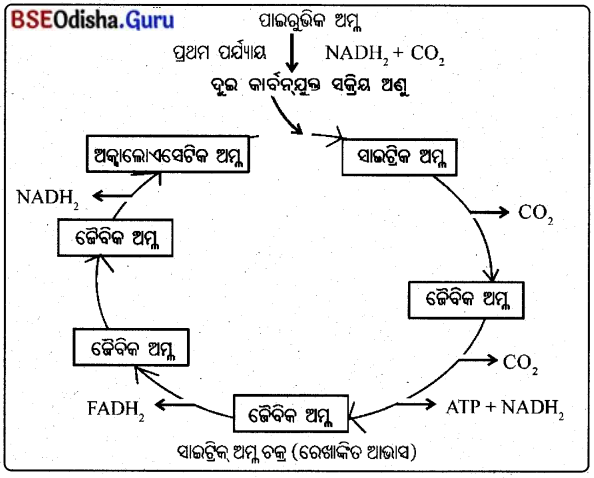
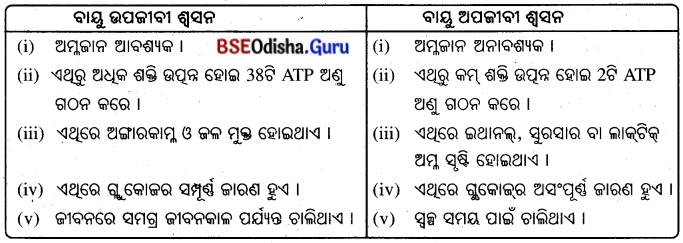
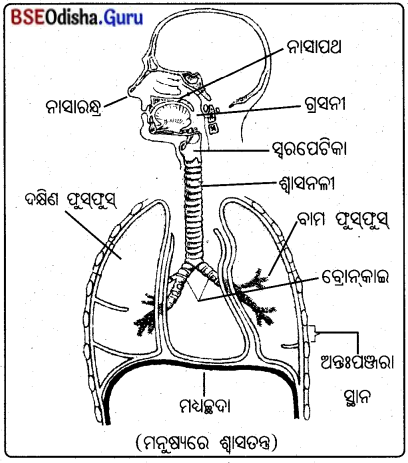
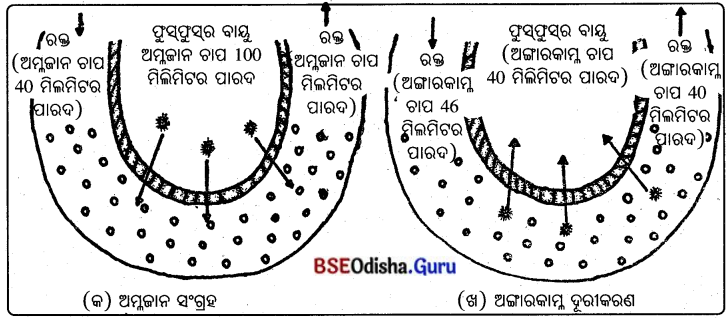 3. କୋଟରିକା ମଧ୍ୟରେ ଥିବା ଠ, ଓ CO2 ଗ୍ୟାସ୍ ଓ ରକ୍ତଜାଲକ ମଧ୍ୟରେ ଥିବା ଠ, ଓ CO2 ଗ୍ୟାସ୍ ମଧ୍ୟରେ ସାନ୍ଦ୍ରତାରେ ଭିନ୍ନତା ଥାଏ । ଏଥ୍ଗୁଁ କୋଟରିକା ମଧ୍ୟସ୍ଥ ବାୟୁ ଓ ରକ୍ତଜାଲକରେ ପ୍ରବାହିତ ରକ୍ତ ମଧ୍ୟରେ ବିସରଣ ପ୍ରକ୍ରିୟା ଦ୍ବାରା ଅମ୍ଳଜାନ ଓ ଅଙ୍ଗାରକାମ୍ଳ ଗ୍ୟାସ୍ତ୍ରର ବିନିମୟ ଘଟିଥାଏ ।
3. କୋଟରିକା ମଧ୍ୟରେ ଥିବା ଠ, ଓ CO2 ଗ୍ୟାସ୍ ଓ ରକ୍ତଜାଲକ ମଧ୍ୟରେ ଥିବା ଠ, ଓ CO2 ଗ୍ୟାସ୍ ମଧ୍ୟରେ ସାନ୍ଦ୍ରତାରେ ଭିନ୍ନତା ଥାଏ । ଏଥ୍ଗୁଁ କୋଟରିକା ମଧ୍ୟସ୍ଥ ବାୟୁ ଓ ରକ୍ତଜାଲକରେ ପ୍ରବାହିତ ରକ୍ତ ମଧ୍ୟରେ ବିସରଣ ପ୍ରକ୍ରିୟା ଦ୍ବାରା ଅମ୍ଳଜାନ ଓ ଅଙ୍ଗାରକାମ୍ଳ ଗ୍ୟାସ୍ତ୍ରର ବିନିମୟ ଘଟିଥାଏ ।
